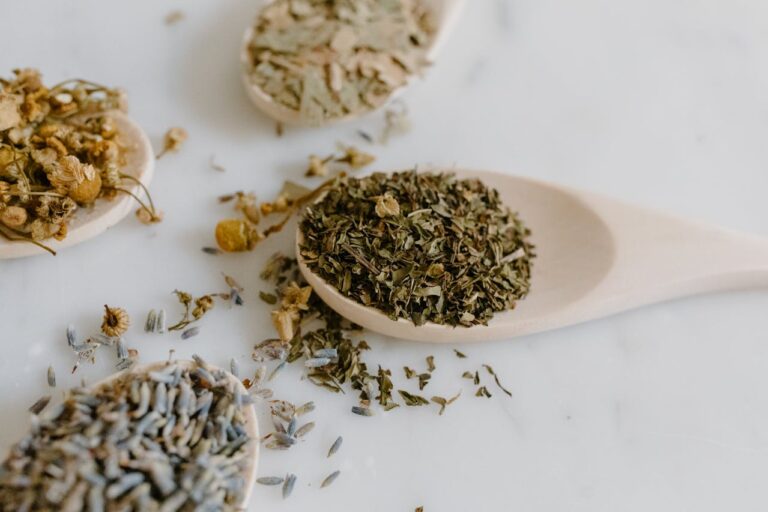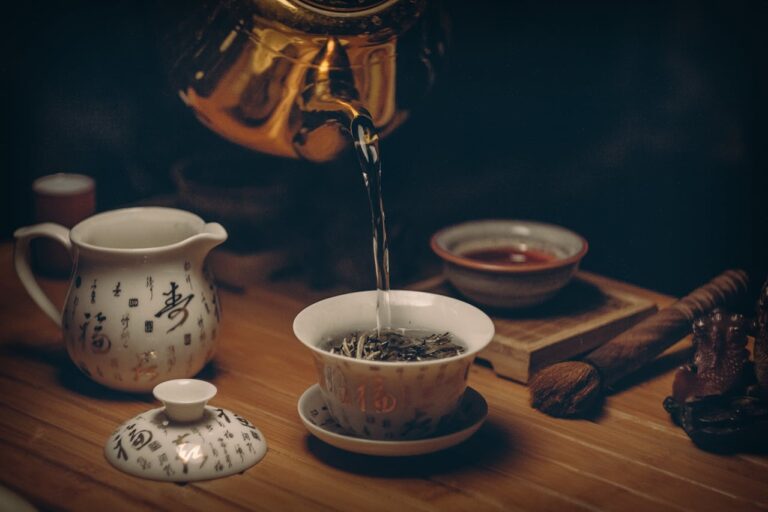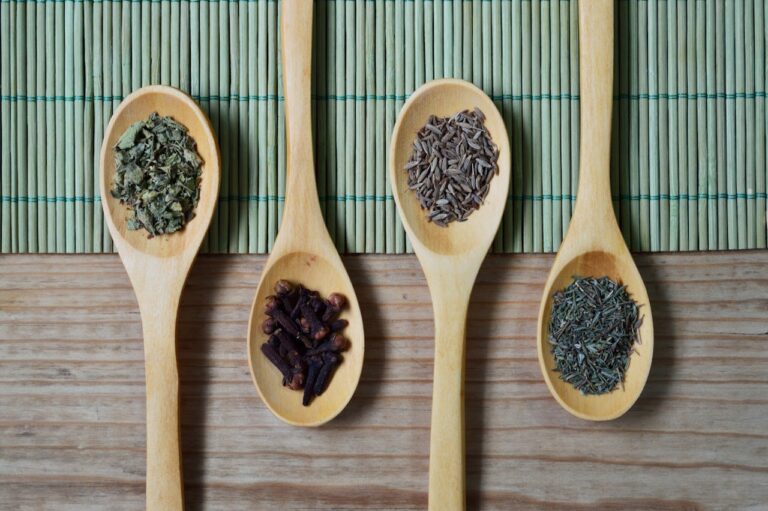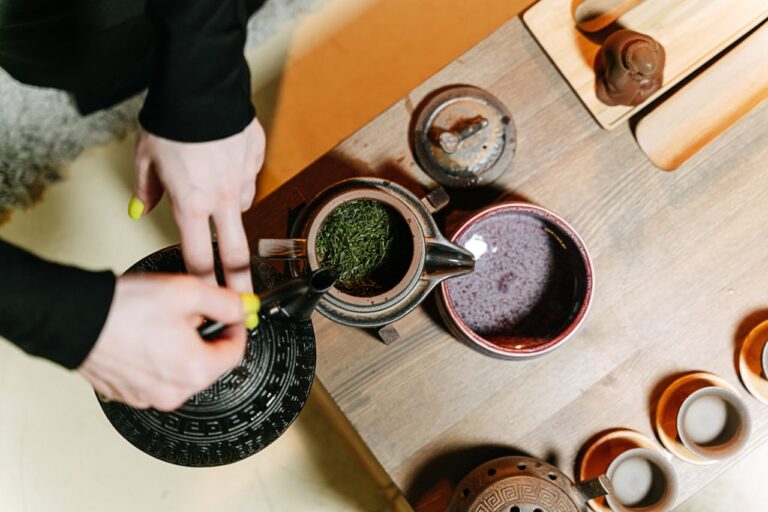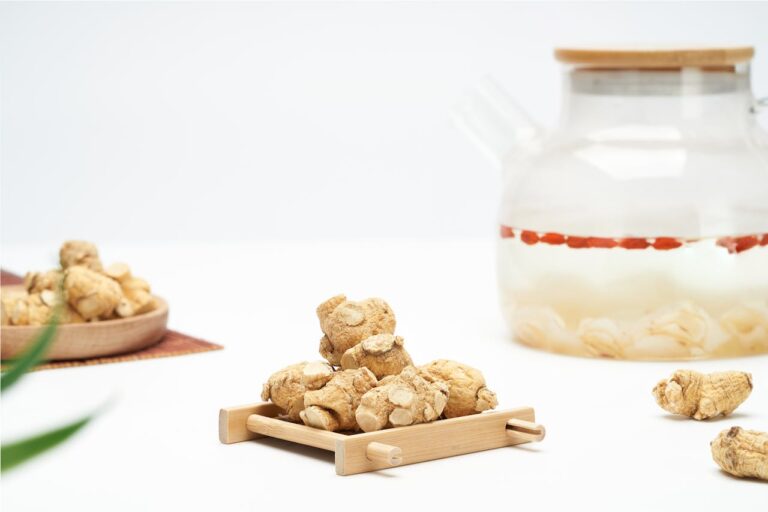Are You Wasting Your Herbs Without Even Realizing It?
You’ve invested in high-quality herbs to support your health naturally, but are you getting the full benefits? Many people unknowingly prepare their herbs in ways that reduce their potency, leaving behind essential compounds that their bodies could be using to heal and thrive.
Herbs contain powerful plant-based compounds, but their effectiveness depends on how they are prepared and consumed. If you don’t extract them correctly, your body may not absorb their beneficial properties as intended.
In this guide, we’ll explore the best methods to maximize herbal potency, ensuring you get the most out of every sip, spoonful, or capsule.
How Different Preparation Methods Impact Absorption
Not all herbs release their healing compounds in the same way. Some require heat, others need alcohol or fat to extract their full range of benefits. Here’s a breakdown of the most common herbal preparation methods and how they affect absorption:
1. Infusions (Herbal Teas)
- Best for: Leaves, flowers, and soft plant parts (e.g., chamomile, peppermint, green tea).
- Method: Steep herbs in hot (not boiling) water for 5-15 minutes.
- Pros: Gentle, easily absorbed, great for delicate herbs.
- Cons: Limited extraction of fat-soluble compounds.
2. Decoctions (Boiled Herbal Teas)
- Best for: Hard roots, bark, seeds (e.g., ginger, licorice, cinnamon, astragalus).
- Method: Simmer herbs in water for 20-45 minutes.
- Pros: Extracts tough plant material and deeper compounds.
- Cons: Time-consuming, can destroy heat-sensitive compounds.
3. Tinctures (Alcohol Extractions)
- Best for: Tough plant materials, resins, and medicinal constituents like alkaloids and flavonoids (e.g., echinacea, ashwagandha, valerian root).
- Method: Herbs are soaked in alcohol for weeks to extract potent compounds.
- Pros: High potency, long shelf life, easy to dose.
- Cons: Alcohol base may not be suitable for everyone.
4. Oil Infusions (Fat-Soluble Compounds)
- Best for: Herbs containing fat-soluble compounds (e.g., calendula, St. John’s wort, rosemary).
- Method: Herbs are soaked in a carrier oil (olive, coconut, or almond oil) for weeks.
- Pros: Great for topical applications, extracts essential oils.
- Cons: Not water-soluble, requires time to infuse properly.
5. Powders (Capsules & Smoothies)
- Best for: Roots, adaptogens, and nutrient-dense herbs (e.g., turmeric, maca, moringa).
- Method: Dried herbs are ground into a fine powder and taken directly or mixed with food.
- Pros: Convenient, full spectrum of plant compounds.
- Cons: Absorption can be limited unless paired with fats or black pepper (as with turmeric and piperine).
6. Fermented Herbs
- Best for: Enhancing bioavailability of hard-to-digest herbs (e.g., ginseng, turmeric, garlic).
- Method: Herbs are naturally fermented with probiotics.
- Pros: Pre-digests nutrients for better absorption.
- Cons: Requires careful preparation.
Herbal Preparation Methods at a Glance
| Method | Best For | Pros | Cons |
|---|---|---|---|
| Infusions | Leaves & flowers | Easy, gentle, hydrating | Limited extraction |
| Decoctions | Roots & bark | Stronger extraction | Time-consuming |
| Tinctures | Tough plants & resins | High potency, long shelf life | Alcohol-based |
| Oil Infusions | Fat-soluble herbs | Great for skin & massage | Not water-soluble |
| Powders | Adaptogens & roots | Convenient, full spectrum | Absorption varies |
| Fermented Herbs | Hard-to-digest plants | Enhances bioavailability | Requires fermentation |
Maximizing Herbal Absorption: Best Practices
Now that you know how different preparation methods impact potency, let’s look at how you can further optimize absorption:
1. Pair with the Right Compounds
- Fats: Some herbs (like turmeric) require fat for absorption. Add coconut oil, olive oil, or ghee.
- Black Pepper: Increases bioavailability of certain herbs (e.g., curcumin in turmeric).
- Vitamin C: Enhances absorption of plant-based iron (e.g., nettle, moringa).
2. Use the Right Temperature
- Some heat-sensitive herbs (like chamomile) should be steeped at lower temperatures to preserve their active compounds.
- Harder herbs (like ginseng and reishi) require longer boiling times to break down tough cell walls.
3. Choose the Right Form for Your Needs
- Need quick absorption? Tinctures work faster than capsules.
- Looking for long-term benefits? Powdered herbs in smoothies ensure a sustained intake.
- Topical relief? Oil infusions deliver compounds directly through the skin.
4. Time Your Consumption
- Morning: Energizing herbs (e.g., ginseng, maca, green tea) work best.
- Night: Calming herbs (e.g., valerian, chamomile, passionflower) support relaxation.
- With meals: Herbs that aid digestion (e.g., ginger, fennel) are best taken before or after eating.
Make Every Herb Count
Using herbs is an incredible way to support your well-being, but improper preparation could mean you’re not getting their full benefits. By choosing the right method—whether it’s a tea, tincture, powder, or oil—you ensure that your body absorbs the powerful plant compounds you’re seeking.
Take the time to prepare your herbs correctly, pair them with complementary compounds, and consume them in a way that best suits your health goals. Small tweaks in preparation can lead to noticeable improvements in how well your body utilizes these natural remedies.
Disclaimer:
This article is for informational purposes only and does not constitute medical advice. Consult a healthcare professional before adding herbs to your routine, especially if you have underlying health conditions or take medications.


